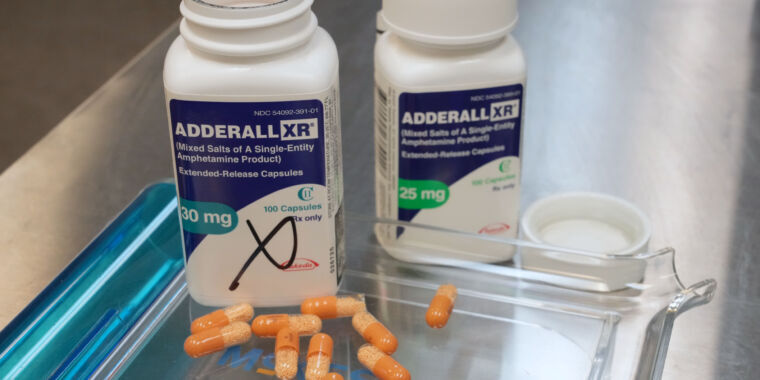The shortages affect everything from generic cancer drugs to ADHD medication.
Drug shortages in the US have reached an all-time high, with 323 active and ongoing shortages already tallied this year, according to data collected by the American Society of Health-System Pharmacists (ASHP).
The current drug shortage total surpasses the previous record of 320, set in 2014, and is the highest recorded since ASHP began tracking shortages in 2001.
“All drug classes are vulnerable to shortages,” ASHP CEO Paul Abramowitz said in a statement Thursday. “Some of the most worrying shortages involve generic sterile injectable medications, including cancer chemotherapy drugs and emergency medications stored in hospital crash carts and procedural areas. Ongoing national shortages of therapies for attention-deficit/hyperactivity disorder [ADHD] also remain a serious challenge for clinicians and patients.”
Erin Fox, associate chief pharmacy officer of University of Utah Health, told CBS MoneyWatch, that most of the drugs in short supply are generic, older products, and around half are injectable drugs that require more stringent manufacturing processes.
That’s impossible, only Socialist countries have shortages.
/s
most of the drugs in short supply are generic, older products, and around half are injectable drugs that require more stringent manufacturing processes
but the drugs that make money hand over fist are all doing just fine.
Would socialized medicine have prevented this?
A lot of the drug shortages are caused by capitalist patent monopolies, so yeah.
It also looks like a very capitalist problem causing shortages of generics, from TFA:
the root cause of shortages of low-cost, off-patent generic drugs is well established. These drugs have razor-thin to non-existent profit margins, driven by middle managers who have, in recent years, pushed down wholesale prices to rock-bottom levels. In some cases, generic manufacturers lose money on the drugs, disincentivizing other players in the pharmaceutical industry from stepping in to bolster fragile supply chains.






